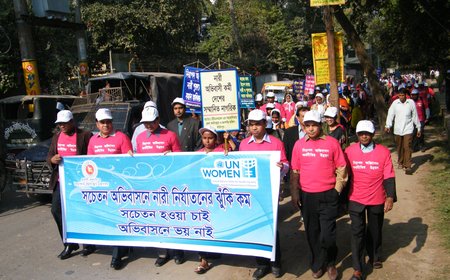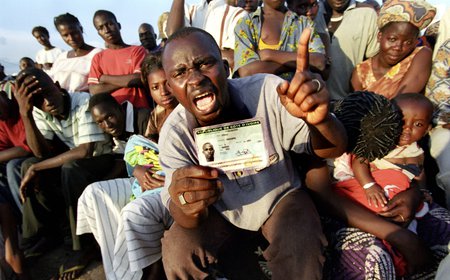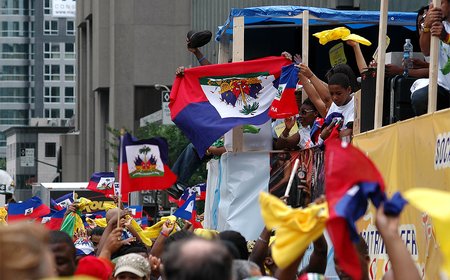Access to justice interventions
MIDEQ's Access to justice thematic area explores the ways that access to justice can reduce migration related inequalities. This includes developing and implementing interventions across MIDEQ teams in Brazil, South Africa, Nepal, Haiti, Ghana, the University of Glasgow as well as with international partners. These interventions examine access to justice through various lens - ranging from creative resistance and the arts to civil society organising. Learn more about our work below.
Access to justice for Haitians in Brazil
Working with the MIDEQ team in Brazil, the Instituto Maria e João Aleixo (IMJA), this project engages with Haitian migrants to understand their needs as well as help them to mobilise and collectively advocate for their rights. The Brazil team will produce an edited book on discussing rights in a context of migration. The book will share what the migrant community understands by justice and quality of life, and map out rights and how to access services, rights, and opportunities in selected states of Brazil with significant populations of Haitian migrants.
Pathways to justice for undocumented children in South Africa: piloting Justice Pathways Analysis
This project, undertaken with the University of Cape Town, pilots a new approach called Justice Pathways Analysis (JPA), which applies a political economy approach to issues of access to justice. JPA moves us away from the more conventional ‘rule of law’ focussed lens associated with the Global North, allowing for a more holistic understanding of justice problems, their nature and the context-specific strategies that might be able to address them. This approach is being piloted in South Africa to better understand barriers and enablers of access to justice for Ethiopian children who migrated alone or are first-generation children born in South Africa and face serious problems associated with a lack of documentation.
Access to justice for stay back families of Nepalese migrants
The Nepal team, working together with a local women’s rights NGO will orient wives and children of migrant workers to the potential challenges associated with having the husband/father away, helping families to make plans to deal with it. It will also raise awareness on access to justice should the migrant member fall victim to fraudulent practice in the destination country, as well as access to justice for wives that may face gender-based violence.
Mapping rights and access to justice for Haitians on the move
Led by MIDEQ’s partners in Haiti, the Interuniversity Institute for Research and Development (INURED) Haiti, this project maps out local organisations and institutions working with Haitians along migration trails and generates integrated strategic actions at both local, national, and regional levels that will support migrants’ rights to justice in these countries. Many Haitians on the move face racism, xenophobia, labour exploitation, and human rights abuses. Documenting community-based solidarities and local institutional supports will help identify locally driven ways to foster conditions that help local communities and stakeholders create new forms of communal solidarities.
Communicating access to justice through the creative arts
We are working with the work package on arts, creative resistance and well-being to produce a choreographic piece which tells the story of the different ‘look and feel’ of justice in different contexts within the Global South, and from the perspective of migrants. The work was undertaken in partnership with the NOYAM African Dance Institute, based in Ghana, thus promoting further knowledge production and capacitation of researchers in arts and multilingual methods. The production combines musical interpretation, textile and costume with dance and movement to a tell multi-layered story of movement, injustice, and the pursuit of justice. The production was showcased at MIDEQ’s regional symposium in Accra on 14 March 2023.
Building global civil society capacity to strengthen migrant workers’ access to justice for wage theft
Many international migrant workers experience wage theft from employers in destination countries, including throughout the Global South. In most cases, multiple systemic barriers make it difficult for workers to avoid or leave exploitative situations or to seek redress through administrative or judicial procedures when they occur. This project with the Migrant Justice Institute will strengthen civil society’s capacity to drive systemic reforms that improve migrant workers’ access to justice for wage theft in national contexts. It will provide advocates with a platform for transnational collaboration, accompanied by detailed guides for law and policy reform in specific areas. Together, the platform and Policy Guides will empower civil society, unions, international organisations and others to compellingly educate governments and businesses, and advocate for effective reforms.



